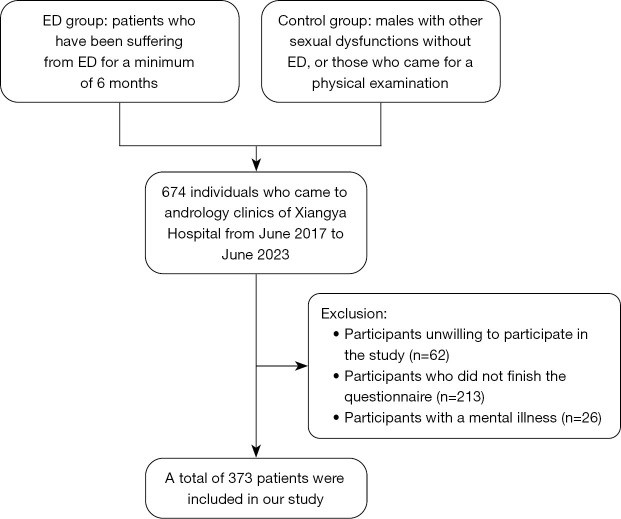The question of whether spicy food impacts testosterone levels is a complex one, sparking curiosity and debate. While some believe a fiery diet can boost this crucial hormone, scientific evidence presents a more nuanced picture. Let’s delve into the existing research to understand the potential connection between spicy food consumption and testosterone, focusing on a recent study that sheds light on this interesting relationship.
Understanding the Research on Spicy Food and Testosterone
A study published in Translational Andrology and Urology explored the impact of spicy diets and smoking habits on erectile dysfunction (ED) in men, with a particular focus on the interaction between these lifestyle factors. This research, while primarily investigating ED, also touched upon the relationship between spicy food intake and testosterone levels, especially within the context of smoking habits.
Study Design and Methodology
The study involved a retrospective analysis of 373 participants attending andrology clinics. Researchers used questionnaires, including the Structured Interview on Erectile Dysfunction (SIEDY) and the International Index of Erectile Function-5 (IIEF-5), to assess ED and its related factors. Participants were also questioned about their smoking history and dietary preferences, specifically focusing on the frequency of spicy food consumption. Blood samples were taken to measure testosterone levels and other key health indicators.
Key Findings: Spicy Food, Testosterone, and Smoking
The results revealed several interesting connections:
- Non-Smokers and Spicy Food: Among non-smoking participants, a higher frequency of spicy food consumption was associated with more severe ED.
- Testosterone Levels: Interestingly, in non-smokers, increased spicy food intake was linked to lower testosterone levels. This inverse relationship suggests a potential connection between a spicy diet and reduced testosterone production in this group.
- Smoking’s Role: The study found no significant impact of spicy food on ED or testosterone levels in participants who smoked. This suggests that the effects of smoking may overshadow or interact with the effects of spicy food.
Interpreting the Results: Does Spicy Food Increase Testosterone?
Based on this study, the answer is likely no, at least not directly. In fact, the research suggests the opposite may be true for non-smokers. Frequent consumption of spicy food was correlated with lower testosterone levels in this group.
Study Flowchart for patient enrollment. This chart highlights the process of participant selection and data collection in the study, which is essential for understanding the context of the findings regarding the impact of spicy food on testosterone.
Factors to Consider
It’s important to note that this is just one study, and more research is needed to confirm these findings and understand the underlying mechanisms. Here are some crucial factors to consider:
- Study Population: The study was conducted on Chinese men attending andrology clinics. This population may have unique dietary habits and genetic factors that could influence the results.
- Definition of “Spicy”: The definition of “spicy” can vary widely. Different types of chili peppers and spice blends have different levels of capsaicin, the active compound responsible for the heat sensation. The study did not specify the types or amounts of spices consumed.
- Lifestyle Factors: The study controlled for smoking, but other lifestyle factors such as exercise, stress levels, and overall diet could also influence testosterone levels.
- Causation vs. Correlation: It’s important to remember that correlation does not equal causation. The study found an association between spicy food consumption and testosterone levels, but it cannot prove that spicy food directly causes a decrease in testosterone.
Potential Mechanisms
While the exact mechanisms are unclear, here are some potential explanations for the observed relationship between spicy food and testosterone:
- Capsaicin and Hormone Production: Capsaicin, the active compound in chili peppers, may interfere with the production or regulation of testosterone. Further research is needed to investigate this possibility.
- Inflammation: Some studies suggest that excessive consumption of spicy food can lead to chronic inflammation in some individuals. Chronic inflammation can negatively impact hormone production, including testosterone.
- Psychological Factors: The study also found a correlation between spicy food consumption and marital factors in non-smokers with ED. Psychological stress and relationship problems can also contribute to lower testosterone levels.
Diet of patients with ED and negative control group. This comparison helps illustrate the differences in dietary habits between those with and without erectile dysfunction, providing context for the potential influence of spicy foods.
Implications and Future Research
This study raises important questions about the potential impact of spicy food on testosterone levels, particularly in non-smoking men. Further research is needed to:
- Confirm these findings in larger, more diverse populations.
- Investigate the specific types and amounts of spices that may affect testosterone levels.
- Explore the underlying mechanisms by which spicy food could influence hormone production.
- Examine the potential interaction between spicy food and other lifestyle factors.
Conclusion: Spicy Food and Testosterone – Proceed with Caution
While the idea of spicy food boosting testosterone might be appealing, current research suggests a more complex relationship. This study indicates that frequent consumption of spicy food may actually be associated with lower testosterone levels in non-smoking men. However, more research is needed to fully understand this connection and its implications for men’s health.
If you’re concerned about your testosterone levels, it’s best to consult with a healthcare professional. They can assess your individual situation and recommend appropriate lifestyle changes or treatments. It’s also important to remember that a balanced diet, regular exercise, and stress management are all crucial for maintaining healthy testosterone levels.
Disclaimer: This article provides information for general knowledge and informational purposes only, and does not constitute medical advice. It is essential to consult with a qualified healthcare professional for any health concerns or before making any decisions related to your health or treatment.

